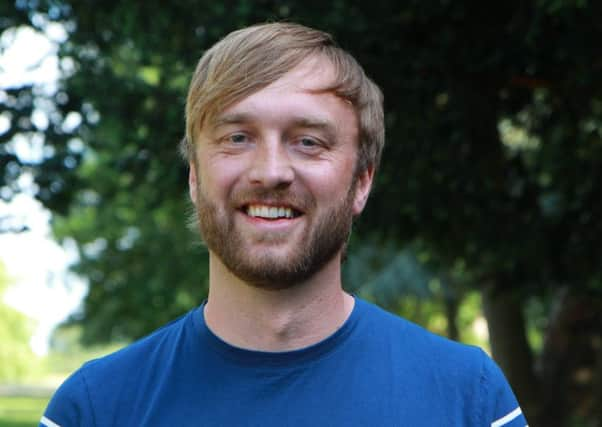Any change to hate crime laws in Scotland must protect faith groups – Dr Stuart Weir


One’s worldview shapes how one goes on to live. The difficulty is that there is a multiplicity of worldviews out there, including in current-day Scotland. Is there room in our country to express ourselves differently from others? To manifest faith without fear of recrimination? It is to such fundamental questions that the Scottish Government is taking a fresh look in its new hate crime laws.
The consultation period with the public for these new laws is now over and it is time to ponder its findings.
Advertisement
Hide AdAdvertisement
Hide AdUnsurprisingly it was recognised in the consultation that “more resourcing” for the police, the courts, in education and other community-based initiatives is required. After the heavy-handed Police Scotland poster campaign hopefully national lessons can be learned about how to live well with one another. How ironic that fear around religiously-motivated crimes spawned such vicious messaging by our law enforcers! Clearly there is much in Scotland to be learned.
Crucial to the feedback of those consulted is that a “substantial proportion of respondents had concerns about the impact of hate crime laws on freedom of speech and religious expression”. Many faith groups and individuals don’t want the repeal of hate crime laws or such laws to be extended because to do so opens up the door to possible restrictions to expressing faith. It is really encouraging to see that such a considerable mass conveyed this essential point because the Scottish Government must take heed. The Scottish Government of our day too needs to live up to such a standard because it’s utopia of liberalism, internationalism, tolerance and inclusion doesn’t always come across to those of a different worldview.
CARE for Scotland, too, has been concerned about hate crime in Scotland. Approaching the freedom of information service at Police Scotland this summer we requested data on “How many acts of vandalism or property damage of churches and mosques were recorded in the last three years?”. There are many buildings of worship that are defaced and vandalised in crimes motivated against people of faith. To our great surprise, and after making three separate requests, we were told that it would take up too much time and resource to provide us with such information. Freedom of information in this case there is not.
In explanation, one of the obstacles Police Scotland has to answering such a question is that they don’t have a category for recording such hate crimes. It is time for a revision of practice by our law enforcers! If we don’t know the real extent of hate crimes towards faith groups because detailed recording does not take place, the crimes themselves cannot be adequately handled. This is grave indeed when it comes to protecting the freedom of expression in Scotland. We must do better. Any change to the hate crime laws in Scotland must protect the manifestation of faith groups and not simply be prepared to crackdown on religious extremism.
Recently, the Chancellor of the Exchequer announced an increase to the security protection fund for places of worship in the spending review. In Northern Ireland a protection fund to be set up to allow churches and other religious building to bid for funds has been requested. The Scottish Government would do well to emulate these moves for Scotland.
We’re here too. Those who are Christian in Scottish society, as it will likely be for most people of faith, are uninterested in a power grab. We are not seeking to overthrow the current state of things; we simply want recognition that we’re still here. We want the protections that have long-existed and which are upheld by Article 10 of the Human Rights Act. People of faith are not second-class citizens and our perspectives should be valued irrespective of whether others understand or agree with our worldview. We live cheek by jowl with people who live very differently from us and we are compelled and motivated to show patient understanding in order to live peaceably with them. Patient understanding does not mean agreement, but it does mean working hard to create an atmosphere of freedom for one another. We need space where there is no cramping.
This brings me finally to a fallacy that many today imbibe. Faith is not something that can or should be bottled up in one’s interior life. It is not a private matter. And this is where difficulties around people of faith and those of no faith have been flaring up. Faith is demonstrative. We live and move and have our being in society because of who we worship. There is no avoiding this fact. My plea today is: let faith groups express themselves; accept that our worldviews will be manifest in Scotland and we will work just as hard to reciprocate.
Dr Stuart Weir is director of CARE for Scotland.